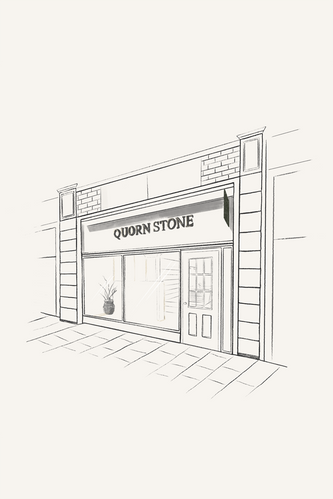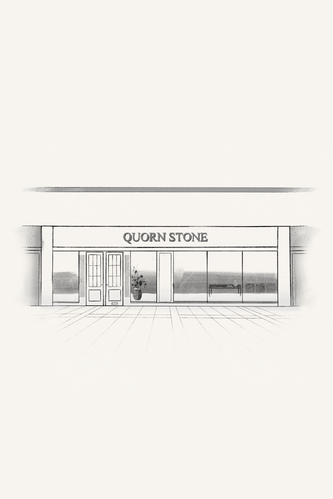A high street boutique, home to our collection of limestone and porcelain tiles.
Opening Hours
| Monday-Friday: | 9am to 5pm |
| Saturday: | 9am to 4pm |
| Sunday: | Closed |
Showroom Address
92a Whiteladies Road
Bristol
BS8 2QN




A high street boutique, home to our collection of limestone and porcelain tiles.
| Monday-Friday: | 9am to 5pm |
| Saturday: | 9am to 4pm |
| Sunday: | Closed |
92a Whiteladies Road
Bristol
BS8 2QN

| Monday-Friday: | 9am to 5pm |
| Saturday: | 9am to 4pm |
| Sunday: | Closed |
Manor Farm, Great Whelnetham
Bury St Edmunds
IP30 0UQ
01284 771 200

An inspirational showroom, home to our collection of limestone and porcelain tiles.
| Monday-Friday: | 9am to 5pm |
| Saturday: | 9:30am to 5pm |
| Sunday: |
Closed |
Park View
30 Radford Way
Billericay, Essex
CM12 0DX

A high street boutique, home to our collection of limestone and porcelain tiles.
| Monday-Friday: | 9am to 5pm |
| Saturday: | 9:30am to 5pm |
| Sunday: |
Closed |
14 Montpellier Street
Harrogate
HG1 2TQ

A Grade II listed former milking parlour, set in the charming grounds of the historic Gaddesden Estate.
| Monday-Friday: | 9am to 5pm |
| Saturday: | 9am to 4pm |
| Sunday: | 10:30am to 4pm |
Oakengrove Yard, Gaddesden Home Farm
Hemel Hempstead
HP2 6EZ
01442 974 787

A renovated former glasswork in the heart of Quorn, now home to our collection of limestone and porcelain tiles.
| Monday-Friday: | 9am to 5pm |
| Saturday: | 9am to 4pm |
| Sunday: | Closed |
2a Loughborough Road
Quorndon, Leicestershire
LE12 8DX

A high street boutique, home to our collection of limestone and porcelain tiles.
| Monday,Tuesday,Wednesday,Friday | 9am to 5pm |
| Thursday | Closed |
| Saturday: | 9:30am to 5pm |
| Sunday: | 10:30am to 4pm |
47-49 Mill Lane
Solihull
B91 3AT

A renovated Grade II listed foundry home to our collection of limestone and porcelain flooring. Internal and external displays.
| Monday-Friday: | 9am to 5pm |
| Saturday: | 9am to 4pm |
| Sunday: | Closed |
The Old Foundry, London Road North
Merstham
RH1 3BN

A high street boutique, home to our collection of limestone and porcelain tiles.
| Monday-Friday: | 9am to 5pm |
| Saturday: | 9:30am to 5pm |
| Sunday: |
10:30am to 4pm |
13 Jewry Street
Winchester
SO23 8RZ
FL stands for Free Length. The free length format is only available in our natural stones.
Free lengths have a fixed width and varying lengths ranging anywhere from 450mm up to a maximum of 1000mm, laid as a random brick bond. For orders over 5m2, you can expect a minimum of 3 different lengths in an order. Please note orders under 5m2 will not always include as many differing lengths.
Read our FAQ's for more information on tile sizes and formats.
Natural stone is a naturally occurring material that has been quarried from the earth. The beauty of natural stone is that no two tiles are ever the same. All natural stone is porous and requires sealing every 3-5 years to protect against water and oil contamination.
Porcelain is a man-made product that combines kaolin clay, finely ground sand and feldspar. The clay mixture is fired to an extremely high temperature (upwards of 1200 c) resulting in a very dense tile that benefits from a low water absorption rate and stain resistance. Depending on the range, porcelain can be uniform in colour or display tonalities to mimic a natural stone.
Whilst the maintenance required of natural stone and porcelain differ slightly, both present a beautiful yet durable option for everyday living.
Yes! With the correct installation, all our floor tiles are suitable for underfloor heating. We advise using an anti-fracture matting when installing the tiles, and discussing any specific substrate or installation requirements with your installer.
Sealant is required for natural stone tiles and will help protect the tiles against water and oil contamination. Subject to the correct maintenance, we recommend resealing internal dry areas, every 3-5 years.
We recommend using both dry and wet methods to keep your natural stone tiles looking their best. Sweeping and vacuuming (with the soft attachment) is great to pick up crumbs from the floor, whilst an occasional mop will keep your floor hygienic and lift light stains. We recommend using Lithofin Wash & Clean for frequent cleaning, and Lithofin Power Clean for intensive cleans.
It is important to use cleaning products designed for natural stone on your floor - regular household cleaners and steam cleaners can damage the surface of the tile and should be avoided.
We recommend using both dry and wet methods to keep your porcelain flooring looking its best. Sweeping and vacuuming (with the soft attachment) is great to pick up crumbs from the floor, whilst an occasional mop will keep your floor hygienic and lift light stains. We recommend using Lithofin Conditioning Cleaner for frequent cleaning and Lithofin Intensive Cleaner for intensive cleans.
It is important to use cleaning products designed for porcelain flooring (always check the manufacturers guidelines and test in a discreet area).